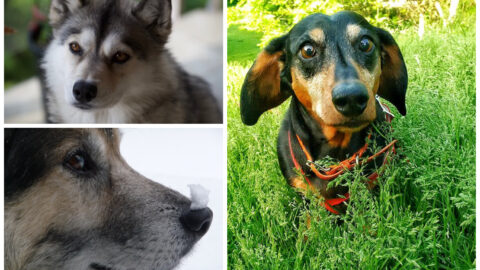We both seem to like the taste of deer and moose, so we compete for the same prey. And if that competition means those populations decline too fast, then wolves naturally turn to the next available food source that, at times, is livestock. That’s not only a human food source, it’s money for people who need it to put food on the table.
So, yeah, we’re often in competition and we’re not a species accustom to coming out on the losing end of any battle.
But there might be another reason some of us don’t like wolves.
Bears, cats, ungulates: they’re nothing like us and we struggle to understand them. But wolves? Their need for companionship and loyalty and protection is something we can see in ourselves.
